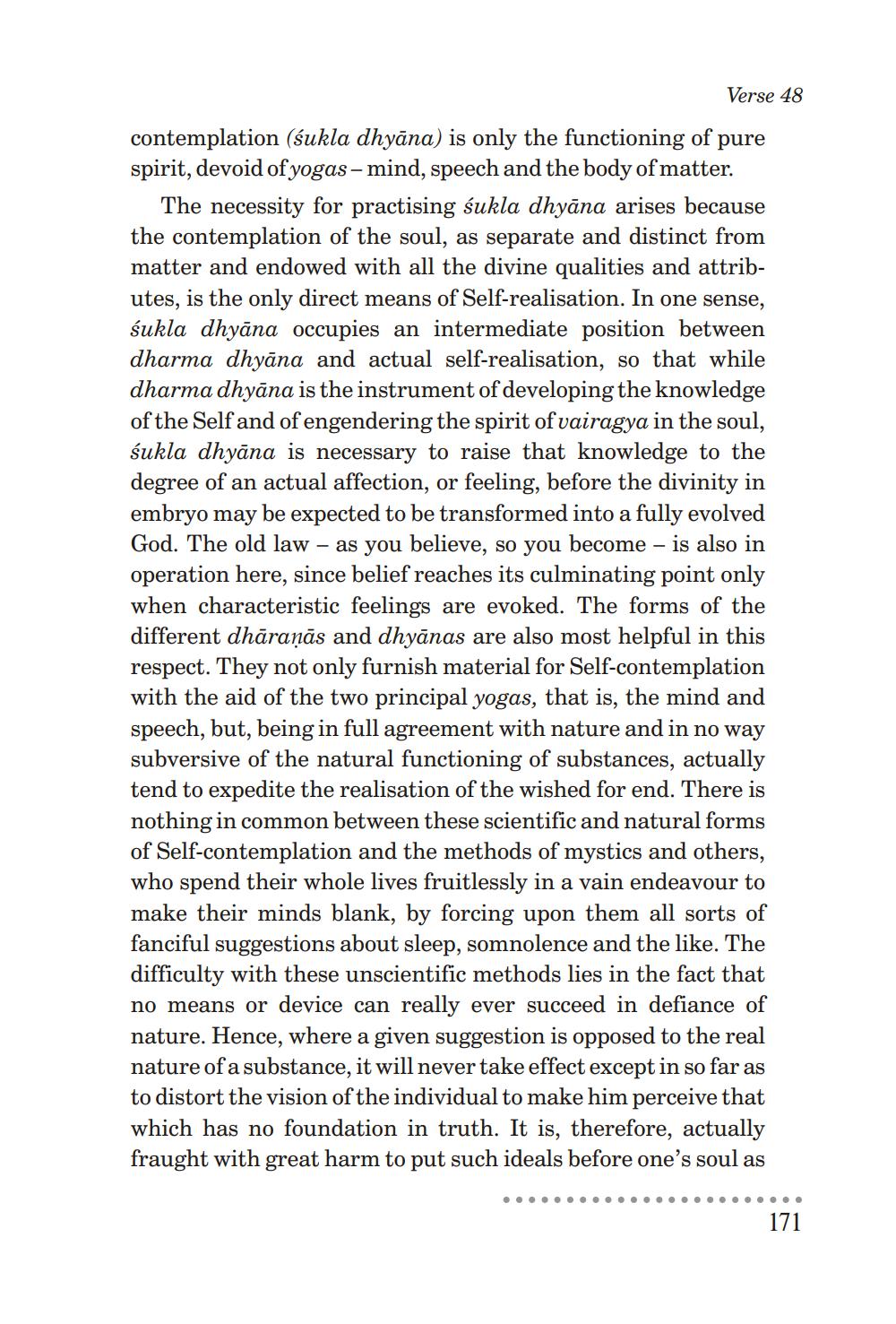________________
Verse 48
contemplation (śukla dhyāna) is only the functioning of pure spirit, devoid of yogas - mind, speech and the body of matter.
The necessity for practising sukla dhyāna arises because the contemplation of the soul, as separate and distinct from matter and endowed with all the divine qualities and attributes, is the only direct means of Self-realisation. In one sense, śukla dhyāna occupies an intermediate position between dharma dhyāna and actual self-realisation, so that while dharma dhyāna is the instrument of developing the knowledge of the Self and of engendering the spirit of vairagya in the soul, śukla dhyāna is necessary to raise that knowledge to the degree of an actual affection, or feeling, before the divinity in embryo may be expected to be transformed into a fully evolved God. The old law – as you believe, so you become – is also in operation here, since belief reaches its culminating point only when characteristic feelings are evoked. The forms of the different dhāraņās and dhyānas are also most helpful in this respect. They not only furnish material for Self-contemplation with the aid of the two principal yogas, that is, the mind and speech, but, being in full agreement with nature and in no way subversive of the natural functioning of substances, actually tend to expedite the realisation of the wished for end. There is nothing in common between these scientific and natural forms of Self-contemplation and the methods of mystics and others, who spend their whole lives fruitlessly in a vain endeavour to make their minds blank, by forcing upon them all sorts of fanciful suggestions about sleep, somnolence and the like. The difficulty with these unscientific methods lies in the fact that no means or device can really ever succeed in defiance of nature. Hence, where a given suggestion is opposed to the real nature of a substance, it will never take effect except in so far as to distort the vision of the individual to make him perceive that which has no foundation in truth. It is, therefore, actually fraught with great harm to put such ideals before one's soul as
171




